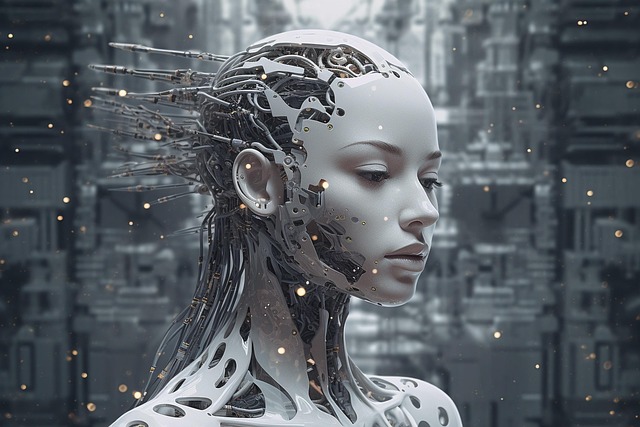
The Impact of AI and ChatGPT on Employment: Navigating the Future of Work
Artificial Intelligence (AI) technologies, particularly language models like ChatGPT, are rapidly transforming various industries, leading to significant shifts in the job market. This comprehensive analysis explores the potential impacts of AI on employment, examining both the challenges and opportunities it presents, and offers strategies for workers to adapt to this evolving landscape.
The Rise of AI and ChatGPT
Understanding ChatGPT and Its Capabilities
ChatGPT, developed by OpenAI, is a state-of-the-art language model capable of generating human-like text based on the input it receives. Its applications range from drafting emails and writing code to creating content and answering questions, making it a versatile tool across numerous sectors.

Rapid Adoption Across Industries
Since its release, ChatGPT has been integrated into various industries, including customer service, content creation, and software development. Its ability to automate tasks traditionally performed by humans has led to increased efficiency and cost savings for businesses.
Potential Impacts on Employment
Job Displacement Concerns
The automation capabilities of AI models like ChatGPT have raised concerns about potential job displacement. Roles that involve repetitive tasks, such as data entry, customer support, and content generation, are particularly susceptible to automation.

Creation of New Job Roles
Conversely, the rise of AI has also led to the emergence of new job categories. Positions such as AI prompt engineers, who specialize in training and fine-tuning AI models, and AI ethics consultants, who ensure responsible AI deployment, are becoming increasingly prevalent.
Industry-Specific Impacts
Technology Sector
In the technology sector, AI is streamlining software development processes. ChatGPT assists in code generation, debugging, and documentation, allowing developers to focus on more complex tasks. However, this also means that roles centered around basic coding and documentation may diminish.
Creative Industries
In creative fields, AI tools are being used to generate written content, music, and visual art. While this democratizes content creation, it also raises questions about the value of human creativity and the potential oversaturation of content.
Customer Service
AI-powered chatbots and virtual assistants are increasingly handling customer inquiries, providing 24/7 support and reducing the need for human agents. This shift necessitates a reevaluation of customer service roles and the skills required.
Strategies for Workers to Adapt
Upskilling and Reskilling
To remain competitive, workers should invest in developing skills that complement AI technologies. Focus areas include critical thinking, emotional intelligence, and complex problem-solving—areas where humans excel over machines.
Embracing AI as a Tool
Rather than viewing AI as a threat, workers can leverage it to enhance their productivity. For instance, using ChatGPT to draft initial content can free up time for more strategic and creative endeavors.
Continuous Learning
The rapid pace of AI development underscores the importance of lifelong learning. Staying informed about AI advancements and understanding their implications can help workers navigate the changing job landscape.
The Future Outlook
Balancing Automation and Employment
While AI will undoubtedly automate certain tasks, it is unlikely to replace humans entirely. The future of work will likely involve a symbiotic relationship between humans and machines, where AI handles routine tasks, and humans focus on areas requiring creativity and emotional intelligence.
Policy and Ethical Considerations
Governments and organizations must consider policies that address the ethical implications of AI in the workplace. This includes ensuring fair labor practices, protecting workers' rights, and promoting equitable access to new job opportunities.
Conclusion
The integration of AI technologies like ChatGPT into the workforce presents both challenges and opportunities. By proactively adapting through upskilling, embracing AI as a collaborative tool, and engaging in continuous learning, workers can navigate the evolving employment landscape and thrive in the age of artificial intelligence.
For further reading on the impact of AI on employment, consider the following articles:
-
Is AI coming for your job? ChatGPT renews fears - Good Morning America
-
ChatGPT, generative AI cause workers to be worried about their jobs - Chicago Business Journal
-
AI will replace nearly 5 million jobs, ChatGPT predicts - CBS News
-
Workers are concerned AI like ChatGPT will take their jobs | Fortune
-
Opinion | Worried about AI taking your job? Remember, robots need people, too. - The Washington Post
-
Some workers are worried that ChatGPT will replace their jobs. They might be right - Yahoo Finance
-
ChatGPT, generative AI cause workers to be worried about their jobs - Bizwomen
-
Will AI, ChatGPT take over jobs? These workers are most concerned - San Francisco Chronicle
-
Jobs Changed by AI, ChatGPT Will Mean Americans Need New Skills - Markets Insider
-
Will AI doom the last of us? As a writer, I don't feel safe | Opinion - USA TODAY
By exploring these resources, readers can gain a deeper understanding of the multifaceted impact of AI on the workforce and the strategies necessary to adapt to this technological evolution.